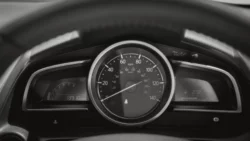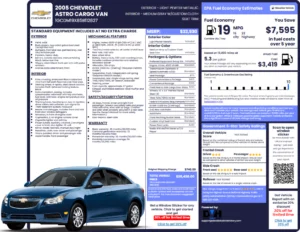Losing your car keys can be a frustrating experience, especially when you don’t have a spare. Did they slip out of your pocket? Were they stolen? Did they vanish into thin air? Whatever the reason, it’s essential to know what to do when you lose your car keys.
In this blog, we’ll explore the steps you should take when faced with the dreaded scenario of being keyless. From retracing your steps to understanding different types of car keys, we’ll guide you through the process of getting a replacement key. Let’s dive in!
What To Do When You Lose Your Car Keys: Start By Understanding the Situation
First things first: panic is not your friend. Take a deep breath and assess the situation. Did you misplace your keys, or were they stolen? Knowing the circumstances will help you decide on the best course of action.
Do you have a spare key? Having a spare car key might seem like an afterthought, but it’s crucial. A replacement key can save you from being stranded and facing expensive towing fees.
Retracing Your Steps
The next step to take is to retrace your steps. Here is a short guide to help you retrace your steps:
- Stay Calm: Take a deep breath and don’t panic. Losing keys happens to the best of us.
- Think Back: Recollect where you’ve been since you last had your keys. Consider places like:
- Your home
- Workplace
- Grocery stress
- Cafes or restaurants
- Friends’ houses
- Parking lots
- Check Common Spots:
- Pockets and Bags: Empty your pockets, bags, and any other compartments where your keys might be hiding.
- Furniture: Look under couch cushions, between sofa seats, and in drawers.
- Coat or Jacket Pockets: Sometimes keys slip into coat or jacket pockets without us noticing.
- Kitchen Counters: Keys often end up near where you dropped your groceries or bags.
- Car Seats: Check between the seats and under them.
- Retrace Your Drive: If you drove somewhere, revisit the places you visited. Check the parking spot, the route you took, and any stops you made.
- Ask People You’ve Been With: Reach out to friends, family, or coworkers you’ve interacted with. They might have seen your keys or remember where you last had them.
- Use Your Phone: Look through your phone’s photos or location history. Sometimes a picture or a location tag can jog your memory.
If by now you still can’t find your keys after taking a good look around, it’s time to check out the next step.
Know What Type of Car Key You Need
So you still haven’t found your key. Now you need to get a new one. But before that, the next step is to understand what type of key you really need and this will guide you on how to get it replaced. If you need a simple, regular key, a locksmith can easily help you out here.
However, if you have one of those smart jets and technologically advanced keys, you may need to visit a dealership with proof of ownership (a vehicle history report would do) to get a key.
There are several key types that have been released over the years with advancements in technology in the industry. Let’s take a look at them:
Traditional Car Keys
A traditional car key is just the regular key that was made for vehicles produced before the ‘90s. They are standard keys with not-so-special features. All they do is start the car with the ignition.
If you lost a traditional key, you can call a locksmith to help you get a lost car key replacement easily for as little as $10. And yes, you can get a replacement car key without the original on the spot.
Key Fob
Key fobs mainly came into the limelight in the ‘90s. They were designed to allow keyless entry into the vehicle but note that they still cannot turn a car on which means there has to be a traditional key elsewhere. They are just simple plastic casings with a few battery-operated buttons that unlock and lock a vehicle, set off alarms, open the trunk, etcetera.
If you lost your key fob and not the main key, you can easily replace the fob if you want to. All you need to do is purchase one online or from a dealership and get it programmed.
Switchblade Key
A switchblade key is like a key fob but with a key attached to the fob. You can pull the key out to put it in the ignition, and just tuck it back when you’re not driving. This way, it kind of looks like a switchblade.
In this situation, if the key fob is lost, it means your main key is also lost and you will have no access to your vehicle at all. To fix this, you can choose to get a locksmith to get a replacement key and get the key fob ordered and programmed later, or you can get the car to the dealership and order a new key – this includes the key fob and key with the switchblade feature.
Transponder keys
Transponder keys are equipped with a built-in chip that communicates with your car’s immobilizer system. This added security feature prevents unauthorized access and requires programming to sync with your vehicle.
These keys help to protect vehicles from theft, but unfortunately, a locksmith cannot help here if your keys get lost or stolen. To get a new transponder key, you will need to tow your vehicle to the dealership you purchased from, or any dealership. They would need some proof of ownership and a vehicle history report sometimes.
Smart keys
Smart keys, also known as proximity keys or keyless entry remotes, utilize radio frequency technology to communicate with your car’s onboard computer. They offer convenience by allowing you to unlock and start your vehicle without physically inserting a key into the ignition.
Similar to the transponder keys, smart keys are convenient but cannot be fixed with a locksmith and only a dealership can fix it.
How Much Does It Cost to Replace a Car Key?
Now that you have identified the car key that you need, you need to gather a few more pieces of information before going to a locksmith or a dealership. You need to find the:
- Your Vehicle Identification Number (VIN)
- The year, make, and model of your car
- Car registration, title, or any other proof of ownership of the vehicle.
With these details, you can proceed to get a key, but how much does it cost? Let’s find out.
- Traditional keys cost around $10 if you want to get them done at a hardware store. If you want an automotive locksmith, it may cost a little more.
- Key fobs may cost around $50-$100 depending on if you prefer an aftermarket product, or one that is specifically designed for your vehicle’s year, make, and model. After purchase, you can ask a dealership to program it.
- Transponder keys will cost around $200 and this includes the cost of towing the vehicle to the dealership.
- Switchblade keys cost around $300, including the towing fee.
Smart keys cost around $200-$500, depending on the year, make, and model of the vehicle, including the dealership.
Getting a Vehicle History Report
If you need a vehicle history report at any point to prove ownership of a vehicle, you can get one using our instant and accurate VIN check tool.
With the report, you can have a vehicle history report that can solidify your ownership claim. It serves as concrete evidence of your relationship with the vehicle, detailing its history and any incidents it may have been involved in.
Try it out today to access ownership information, theft records, accident records, and more.
10 Tips To Avoid Losing Your Keys
Knowing what to do when you lose your car keys doesn’t mean you should be careless with yours. Here are some helpful tips to keep your keys safe:
- Designated Spot: Designate a specific spot for your keys at home. Use a key hook, bowl, or a small tray near the entrance. Train yourself to always place your keys there when you come in.
- Consistent Routine: Make it a habit to check for your keys before leaving any location. Whether it’s your office desk, a restaurant table, or a friend’s house, take a moment to ensure you have them.
- Backup Key: Always have a spare key, just in case. Have a spare key made and keep it in a secure place, separate from your primary set. Consider giving a spare to a trusted family member or friend.
- Key Finder Gadgets: Invest in a key finder device. These small gadgets attach to your keychain and help you locate your keys using your smartphone.
- Minimal Keychain: Avoid cluttering your keychain with unnecessary items. The more items you have, the easier it is to lose track of your keys.
- Check Pockets: Before doing laundry or changing clothes, check your pockets thoroughly. Keys often end up in unexpected places.
- Secure Pockets or Bags: Use zippered pockets or bags to prevent keys from falling out accidentally.
- Avoid Leaving Keys in Ignition: When parked, never leave your keys in the ignition—even if you’re just running a quick errand.
- Remember Where You Put Them: When you place your keys down, say it out loud or mentally note where you left them. This reinforces memory.
- Stay Calm If You Do Lose Them: If you find yourself without keys, take a deep breath. Retrace your steps and follow the steps we discussed earlier.
Remember, a little mindfulness goes a long way in keeping your car keys safe and sound! If you’ve lost your car key, you can always get it replaced.










